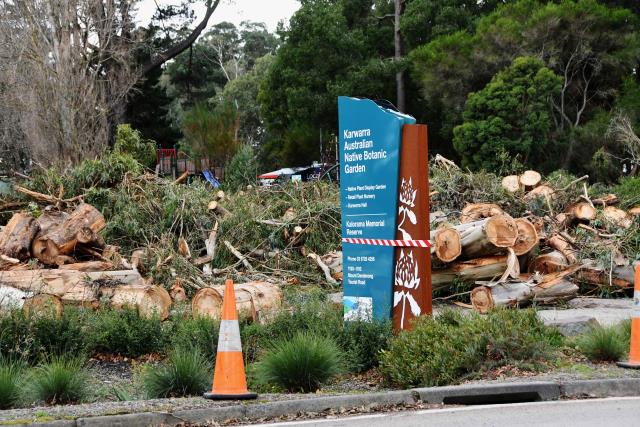An emergency fund of $10 million can now be activated by the Yarra Ranges Council during natural disasters as the region grapples with increasingly severe weather events.
The council unanimously approved the overdraft facility at the 14 October council meeting, which was established due to the delay in seeking financial support from other levels of Government.
Cr Len Cox described the flexible credit arrangement as a “fallback position” which he hoped council would “never need to use”.
“This gives us the opportunity to immediately be able to find the money to put into writing anything that’s happened, any damage that’s occurred or anything that needs financing.”
He said it meant the council could fund disaster recovery efforts as they happen, rather than trying to “beg or borrow” money from the State Government.
“I think it’s an excellent idea, and hopefully we never need to use it,” Cr Cox said.
In the last five years, natural disasters drained a total of $44.7 million of the council’s funds, with the June 2021 storms accounting for roughly half of that figure.
Yarra Ranges Council is considered to be the second municipality nationwide to experience extreme weather events, having weathered 13 severe events in the last five years.
With the average cost of each of these events just under $9 million, the $10 million overdraft facility ensures the council can adequately cover these disasters.
The location of the Yarra Ranges means there aren’t as many revenue streams available, which impacts the council’s ability to sustain itself financially.
An overdraft facility is a line of credit which allows the council to make withdrawals up to an agreed limit. Repayments are only necessary on the amount used, and no fixed monthly repayments are required.
Establishing the $10 million overdraft facility comes with an estimated fee of $20,000, with interest charges added on only when accessing the fund.
But, when compared to the estimated $280,000 annual interest charge for a fixed interest loan of $10 million, the overdraft facility fees are much more manageable.
Cr Tim Heenan was indignant at the lack of support from other levels of government and said he felt “fairly angry” the council had to establish the emergency funding measures.
“I believe we were severely let down in the June storms of 21 when we had to go cap in hand to both state and federal government for the cleanup that we had to do and we had to compromise.”
“It’s been left to us to take care of these events… It should not be local government that has to think about doing the cleanup after what we’ve had to go through,” Cr Heenan said.
The delay in receiving financial support from other levels of government meant the council has had to take on costs in the short term, significantly impacting its cashflow.
Since the overdraft facility is a line of credit and not a loan or borrowing, the cost is not included in the council’s budget.
No community consultation was undertaken when establishing the overdraft facility.







